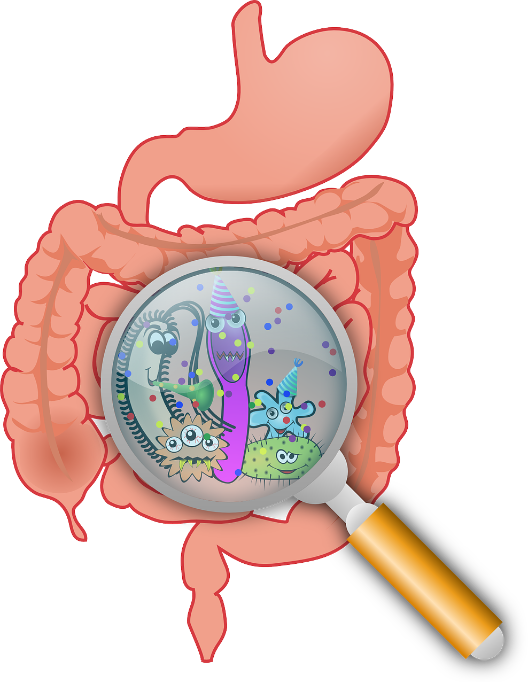WHAT IS THE MICROBIOME?
When we think of bacteria, our minds often go straight to illness — infections, disease, and things we want to avoid. But what we often overlook is just how essential bacteria (and other microbes) are to our health.
Your microbiome is a vast, unique ecosystem made up of trillions of microorganisms — including bacteria, fungi, archaea, protozoa, and viruses — that live primarily in your gut. Far from being harmful, these microbes play a vital role in your health and wellbeing every single day.
The microbiome influences a wide range of bodily functions, including:
-
Digestion and nutrient absorption
-
Metabolism and weight regulation
-
Detoxification processes
-
Immune system function and resilience
It’s also closely linked with many chronic conditions, particularly those involving the gut — such as IBS, inflammatory bowel disease, SIBO, and non-alcoholic fatty liver disease. But the impact doesn’t stop there.
Recent research shows strong connections between the microbiome and a wide array of non-digestive conditions, including:
-
Mood disorders like anxiety and depression
-
Skin conditions such as eczema and acne
-
Asthma and allergies
-
Diabetes and metabolic disorders
-
Autoimmune diseases
-
Even neurodegenerative conditions like Alzheimer’s disease
Surprised? You’re not alone. The science of the microbiome is one of the most exciting and rapidly evolving areas in modern health and medicine — and we’re only just beginning to understand its full impact.
Ready to dive deeper? Here are a few fascinating facts about your microbiome you might not know:

Fascinating Facts About Your Microbiome
Fascinating Facts About Your Microbiome
-
You are more microbe than humanYour body contains more bacterial cells than human cells — by the trillions!
-
Your microbiome is incredibly diverseYou host around 1,000 different microbial species, all coexisting in a complex and dynamic ecosystem.
-
It’s a symbiotic relationshipYour microbes live in a mutually beneficial partnership with you — their host. Depending on the balance and types of microbes present, this relationship can either support your health or contribute to disease.
-
Your microbial genes vastly outnumber your ownThe genes in your microbiome outnumber your human genes by about 150 to 1 — making it a powerful genetic force within your body.
-
Microbes have weight — and it's significantThe total weight of all the microbes in and on your body is roughly equal to the weight of your brain!
-
Your microbiome is metabolically activeIt’s so involved in your body’s internal chemistry that it participates in more metabolic reactions than your liver — the body’s primary detox organ.
-
You are more microbe than humanYour body contains more bacterial cells than human cells — by the trillions!
-
Your microbiome is incredibly diverseYou host around 1,000 different microbial species, all coexisting in a complex and dynamic ecosystem.
-
It’s a symbiotic relationshipYour microbes live in a mutually beneficial partnership with you — their host. Depending on the balance and types of microbes present, this relationship can either support your health or contribute to disease.
-
Your microbial genes vastly outnumber your ownThe genes in your microbiome outnumber your human genes by about 150 to 1 — making it a powerful genetic force within your body.
-
Microbes have weight — and it's significantThe total weight of all the microbes in and on your body is roughly equal to the weight of your brain!
-
Your microbiome is metabolically activeIt’s so involved in your body’s internal chemistry that it participates in more metabolic reactions than your liver — the body’s primary detox organ.
Ready to Repair Your Microbiome?
Thanks to advancements in DNA technology, we can now accurately test the composition of your gut microbiome — identifying exactly which bacteria are present, in what proportions, and how they may be impacting your health.
The Microbiome Repair Program begins with a comprehensive initial consultation, where we explore your symptoms, diet, lifestyle, and medical history in depth. From there, we incorporate microbiome testing, which is carefully analysed alongside your current health picture to create a tailored, evidence-based treatment plan.
This program is designed to restore balance to your gut microbiome and support long-term health from the inside out.
If this sounds like the support you've been looking for, please contact me for further information
.

